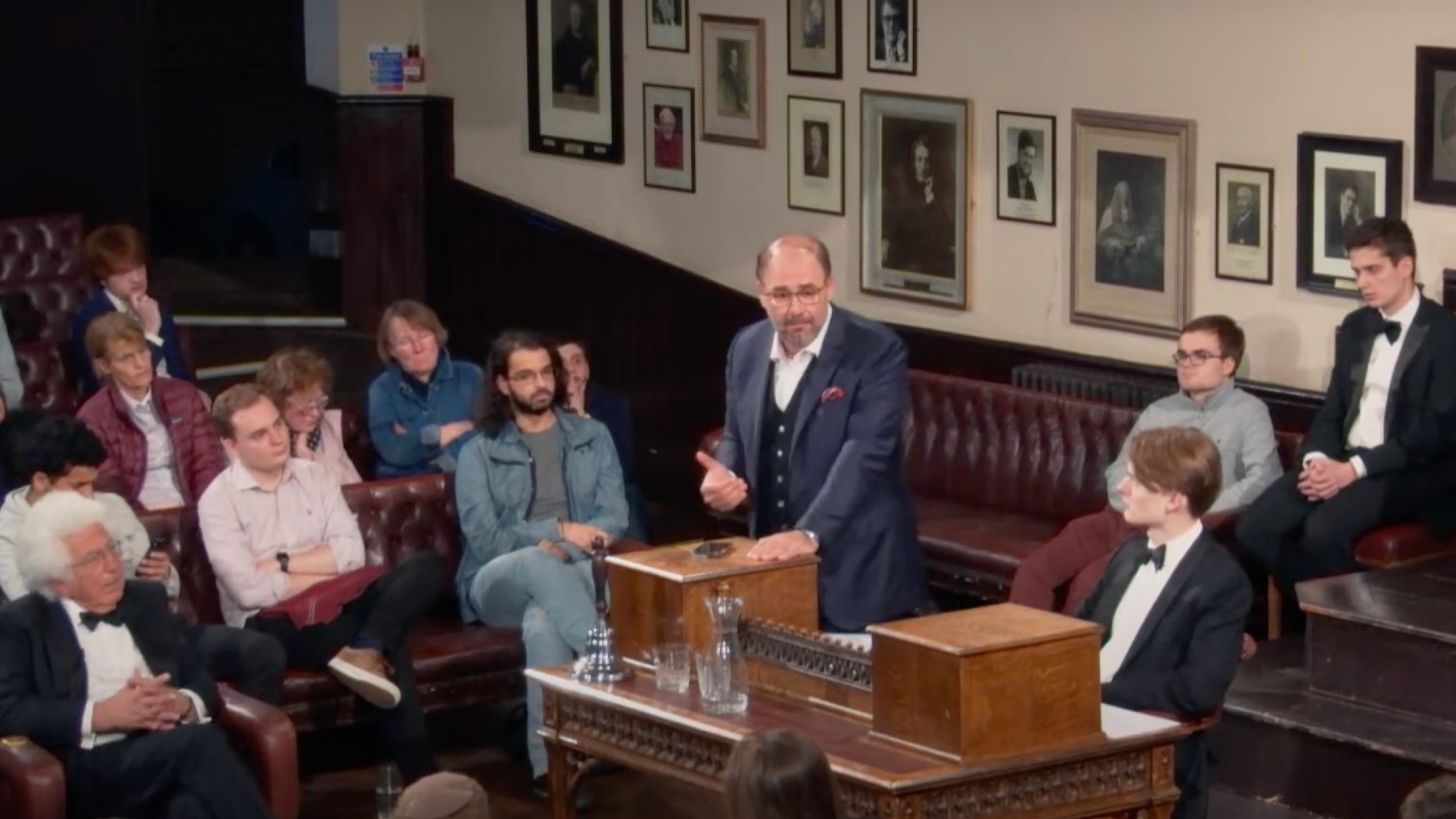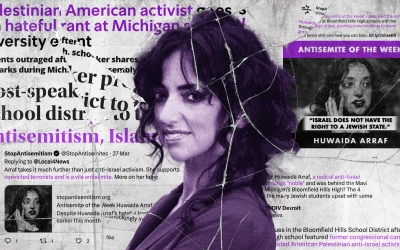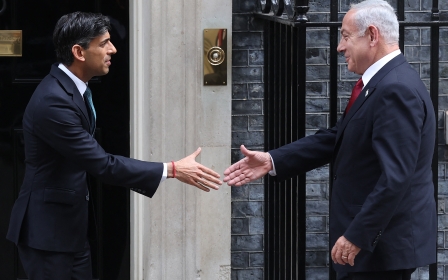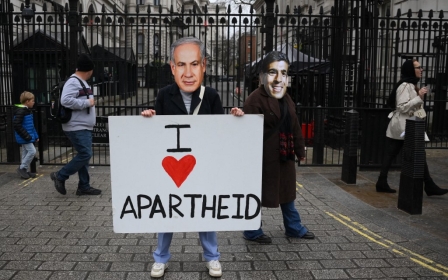Cambridge Union criticised over Israel-Palestine debate name change

The Cambridge Union is facing accusations of undermining free speech after it changed the title of a debate on the Israeli-Palestinian conflict.
The prestigious society held a discussion on the conflict on Thursday but two of the invited speakers, Avi Shlaim, Emeritus Professor of International Relations at Oxford University; and Wadah Khanfar, president of the non-profit al Sharq Forum; criticised the decision to remove the word "occupation" from the motion which framed the debate.
The initial motion was advertised as: "This House Believes the West should put greater pressure on Israel to end its occupation" but was later changed to "This House would pressurise Israel to exchange land for peace."
It's unclear when the change took place but according to the union's website and the latest issue of its magazine, the event was being advertised under the most recent name since 24 April.
"Had I known that this is the motion I would have spoken against it, because I don't believe in land for peace," Shlaim told the union during his 14-minute address.
New MEE newsletter: Jerusalem Dispatch
Sign up to get the latest insights and analysis on Israel-Palestine, alongside Turkey Unpacked and other MEE newsletters
"Israel has said for 55 years [that] it’ll trade land for peace and hasn't done so. I support a democratic solution; one democratic state with equal rights for all its citizens regardless of religion [and] ethnicity between the Jordan River and the sea.
"But I will speak to the original motion, which made much more sense. It was: 'This house believes that the West should put greater pressure on Israel to end its occupation'. Israel's presence in the Palestinian territory is the most prolonged and brutal military occupation of modern times."
Khanfar, the former director general of the Al Jazeera Media Network, went on to compare the Palestinian struggle to that of colonially oppressed people throughout history.
"No one in the world, no respected body or government or international law in the world, does not recognise that the land of Palestine in 1967 was occupied, but Israel and the lawyers of Israel. It is a fact," he said.
'Deeply disappointing'
Israeli settlements are illegal according to international law, which prohibits occupying powers from transferring their civilian population into areas under their military control.
In October, the UN General Assembly said that Israel's occupation was unlawful due to its permanence and Israel's de-facto annexation policies.
The opposition, made up of two student speakers and Natasha Hausdorff, a director of UK Lawyers for Israel, did not address the name change and focused their speeches on the official motion.
Middle East Eye reached out to the union, which is a private society and completely separate from the Cambridge University Students' Union, for comment but did not receive a response by time of publication.
Several pro-Palestine activists were furious at the union, with one member slamming the event as "shambolic".
"People just debated different motions," the member told MEE.
Bassil Alaaeddin, a student of Palestinian heritage who attended the debate, said that he was "ashamed and disappointed to have the oldest free speech society in the world no longer able to defend free speech".
"Can we no longer call an illegal occupation out for what it is? This is what it's like to be a Palestinian student at Cambridge," he said.
Meanwhile, the president of the Cambridge University Palestine Society told MEE that it was "deeply disappointing" that the term "occupation", which "describes a factual state of affairs in the West Bank and Gaza Strip", was excluded from the motion.
"The framing of land exchange... ignores the Palestinian right of return and turns the narrative into one of territorial dispute. This excludes the opinion of the vast majority of pro-Palestinian thinkers who insist on freedom and equality from the Jordan River to the Mediterranean Sea."
The union has previously faced criticism for hosting Israeli officials despite criticism from other student groups.
Last year, more than 100 students rallied against a decision to invite Israeli ambassador Tzipi Hotovely, who has publicly described the Nakba as an "Arab lie".
The Nakba, which means "the catastrophe" in Arabic, is the name given to the massacres and forced expulsion Palestinians endured at the hands of Zionist militias in 1948, as the new Israeli state came into existence.
Entire Palestinian villages were destroyed, with Zionist gangs indiscriminately killing unarmed civilians and burying some in mass graves. The Nakba left an estimated 15,000 Palestinians dead and some 750,000 fleeing their homes to live as refugees.
Middle East Eye delivers independent and unrivalled coverage and analysis of the Middle East, North Africa and beyond. To learn more about republishing this content and the associated fees, please fill out this form. More about MEE can be found here.





